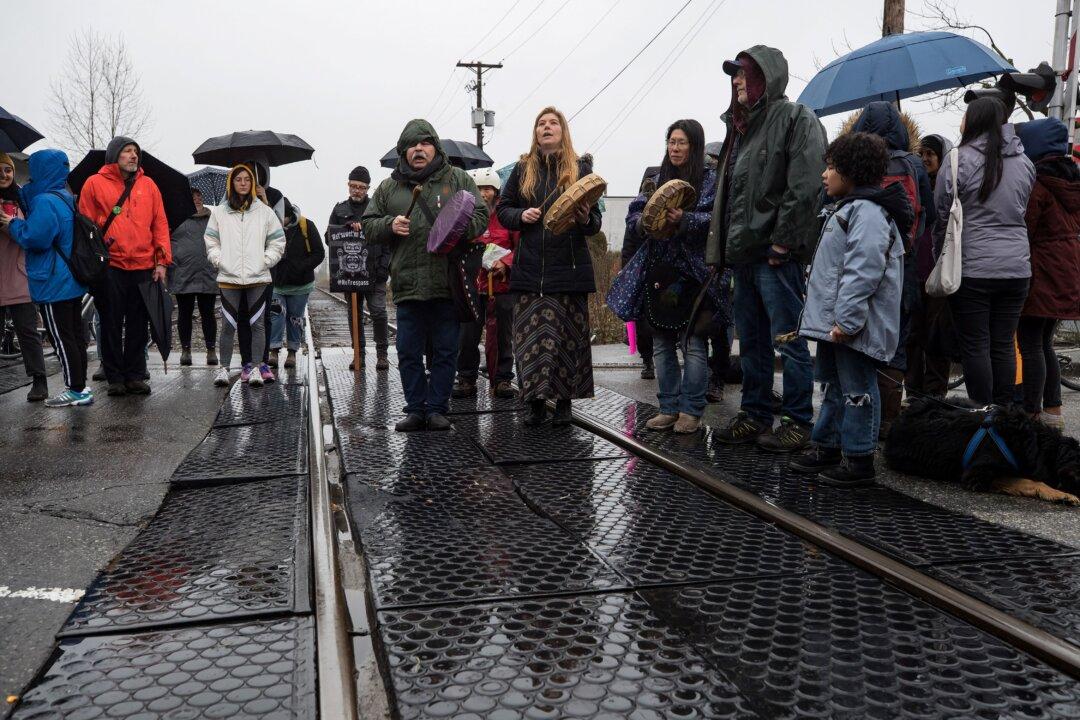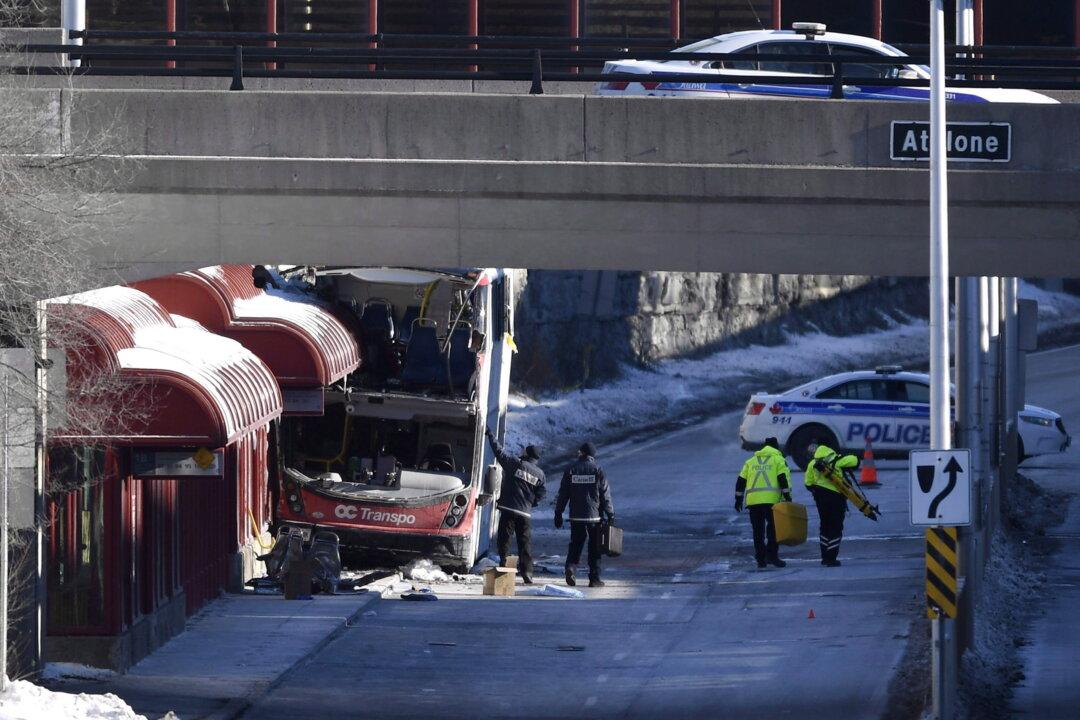OTTAWA—Prime Minister Justin Trudeau was in talks over the weekend with federal cabinet ministers as protesters opposed to a pipeline project in British Columbia continued to halt train service across parts of the country.
Trudeau’s spokeswoman Chantal Gagnon said Sunday the prime minister had already spoken to Deputy Prime Minister Chrystia Freeland, Transport Minister Marc Garneau, Public Safety Minister Bill Blair, and Carolyn Bennett, the minister for Crown-Indigenous Relations.





